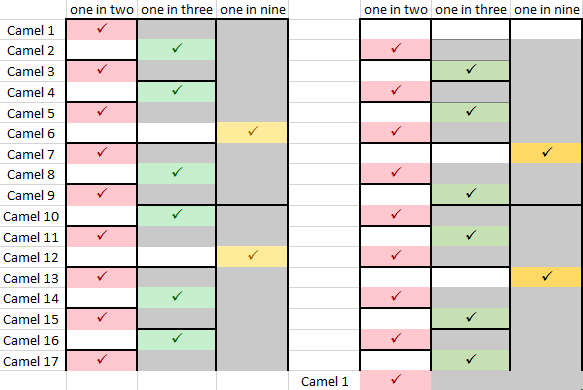There are other correct answers up there, but this puzzle is improved if instead of $18-1=17$ camels is available, there are $2*18-1=35$ camels available.
Then when the old friend brings a camel to make the division work, eldest gets $36/2=18$, middle gets $36/3=12$, youngest gets $36/9=4$ camels, which sums to 34, leaving TWO surplus camels, so the old friend gets his camel back, and claims the other as his reward for solving the brothers' problem.
[edit] I delivered a version of the traditional puzzle to an extracurricular math club for 6th-7th graders this week, and they loved it. I staged it "One day in Arabia, a mathematician was traveling on his camel through the desert, when he came across three men and a pack of camels. They were crying, and sharpening knives..."
After the class was done, I was thinking, wouldn't it be cooler if instead of just getting his camel back, he actually got a bonus camel? And (near)doubling the herd was able to double the slop from those fractions not summing to 1. I'm going to ask them next week, "What if there were 35 camels?" and let them work it out.

